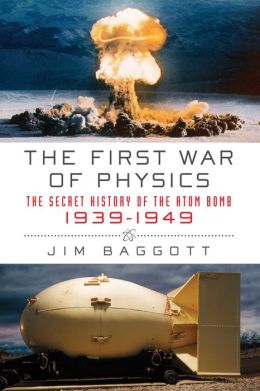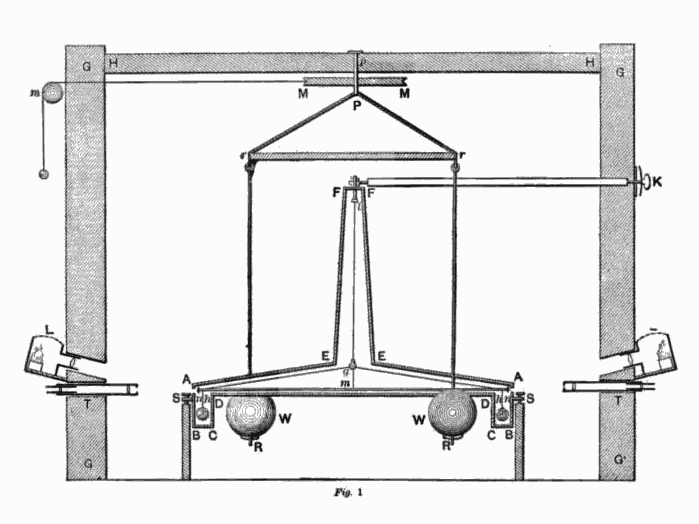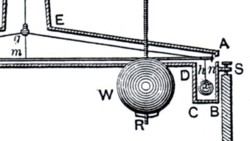The experiment was performed in 1797–98 by the English scientist Henry Cavendish. He followed a method prescribed and used apparatus built by his countryman, the geologist John Michell, who had died in 1793.
Even though Newton already had calculated the value of the gravitational constant G, it wasn’t confirmed in labarotory. This is where the torsion bar experiment comes into play.
The apparatus employed a torsion balance, essentially a stretched wire supporting spherical weights. Attraction between pairs of weights caused the wire to twist slightly, which allowed the first calculation of the value of the gravitational constant G. The experiment was popularly known as weighing the Earth because determination of G permitted calculation of the Earth's mass. The simple equation of gravity created back at the end of 17 century by Newton was confirmed once again.
Source
Source
Thanks for reading! Please subscribe and comment. Cheers!


 3:09 PM
3:09 PM
 silentbob14
silentbob14



 Posted in:
Posted in: 

1 comments:
nice Physics Experiments
Post a Comment